President's Message - June 2011
A Focus on Professional Learning Keeping Inquiry at the Heart
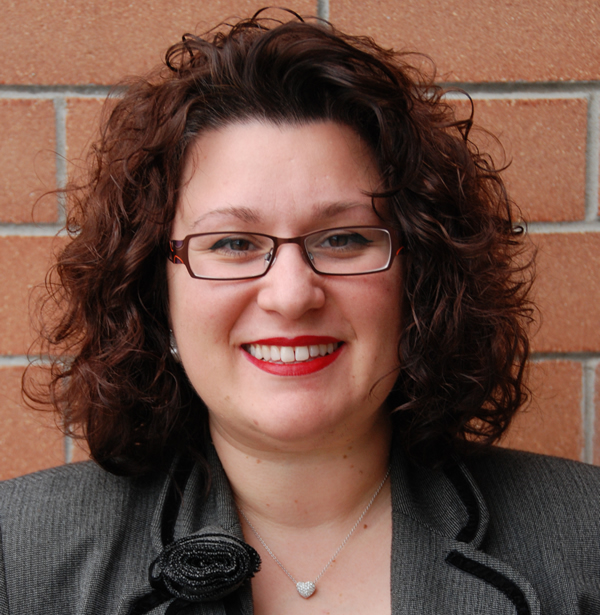
CONNIE QUADRINI
connie.quadrini@oame.on.ca
In my early years of teaching, I had the privilege of working alongside this extraordinary educator. An educator of over 30 years, Mona had experienced a variety of roles including teacher, department head, consultant, and secondee to the Ontario Ministry of Education. As a lead learner, Mona kept inquiry at the heart of her work. She engaged so many of her colleagues, including myself, in grounding professional learning in support of student learning. To this day, it is Mona's vision that inspires me to continue to refine my inquiry focus and seek out collaborative professional learning opportunities and networks to support my growth as an educator.
Professional Learning in Mathematics
As a mathematics community, we have been blessed with many opportunities to engage in meaningful professional learning. OAME offers us the Annual Conference, Leadership Conference, and local chapter mini-conferences. Many provincial opportunities have been afforded to us, including various Math GAINS (Growing Accessible Interactive Networked Supports), PLMLC (Professional Learning for Mathematics Leaders and Coaches) series, Math CAMPPP (Collaborative Actions for Mathematical Precision, Personalization and Professional Learning), and CIL-M (Collaborative Inquiry for Learning: Mathematics). Many of you may also have participated in mathematics professional learning within board networked learning series or school-based professional learning communities.
Deborah Ball suggests that content knowledge for teaching (CKT-M) is critical for teachers of mathematics. What does this mean and what are the implications of the development of CKT-M within professional learning?
Over the past years, we have seen professional learning in Ontario evolve. For example, collaborative inquiry and co-teaching have enabled knowledgebuilding environments that support the development of CKT-M by providing educators with "opportunities to practice the kinds of mathematical thinking, reasoning, and communicating used in teaching" (Deborah Ball, 2008). By engaging in mathematical problems and tasks within professional learning, educators unpack important mathematical ideas and make connections among them. As educators study students' mathematical thinking, they may uncover potential misconceptions, partial understanding, and/or struggles that students bring to the task. Through collaborative analysis of student learning, educators "see" mathematics through the eyes of students, enabling them to consider ways in which to respond to their work.
Whether we are considered a "specialist" in mathematics or not, we are called to deepen our own understanding of the mathematics we teach through the development of CKT-M so that we can best serve our students. It is through such purposeful actions and interactions within inquiry-based professional learning that educators can develop this expertise.
Our Provincial Opportunity
Over the past few years, professional learning in Ontario has presented us with new ways of thinking about mathematics instruction. Whether a focus on teaching through problem solving, using open questions, engaging students in purposeful mathematics talk, or using manipulatives and technology effectively, educators have explored new approaches and strategies within instruction to support student learning. Yet with this new learning comes new dilemmas, in particular those involving assessment. With the release of the Growing Success document, we are presented with a renewed opportunity to explore assessment and its interconnection with instruction and CKT-M.
The upcoming OAME Leadership Conference entitled "Creating Communities of Assessment Inquiry and Practice: A Vision for Leadership in Mathematics" will take place on October 27, 28, and 29, 2011. With a focus on Assessment Leadership from NCSM's PRIME Leadership Framework, the conference will engage participants in exploring actions and interactions that focus on the following assessment indicators:
- Every teacher uses student assessments that are congruent and aligned by grade level or course content.
- Every teacher uses formative assessment processes to inform teacher practice and student learning.
- Every teacher uses summative assessment data to evaluate mathematics grade level, course, and program effectiveness.
The conference will provide an exciting "year-long" opportunity for collaborative inquiry. Once registered, delegates will have the opportunity to post assessment dilemmas on the Leadership Conference wiki and explore those posted by their colleagues. Prior to the October conference, delegates will engage in a virtual session that will prime them for action in preparation for the conference. The conference will provide an opportunity for learning with K-12 plenary groupings, as well as within grade band and by role breakouts. The seamless interconnections between plenary groupings and breakouts, as well as across breakouts, will provide rich professional learning experiences for delegates. Following the October conference, delegates will engage in another virtual session that will provide an opportunity for sharing new learning and new dilemmas. Delegates will then be invited to reconvene at the OAME 2012 Annual Conference to continue their collaborative inquiry and/or share their year-long learning with others.
An Invitation
As I enter my year of presidency and reflect upon Mona's powerful vision of learning, I invite you to reflect upon your inquiry for the year. What will your focus be? How will you embed CKT-M? Whom will you seek to work with as you journey through this inquiry? What professional learning will you seek out and how will you share your learning and new insights with others? I hope that you will join me at the upcoming OAME Fall Leadership Conference and look forward to our collaborative assessment inquiry.
References
Ball, D. w/Bass, H., Boerst, T., Cole, Y., Jacobs, J., Kim, Y., Lewis, J., Sleep, L., Suzuka, K., Thames, M., & Zopf, D. (2008). Developing teachers' mathematical knowledge for teaching. Mathematics Focus Session, presented at the University of North Carolina, Chapel Hill, NC, October 21, 2008.
Previous Message:
Shades of Grey
Next Message:
Teachers Preparing for Knowledge Building Classrooms - Aligning, Curriculum, Instruction, and Assess

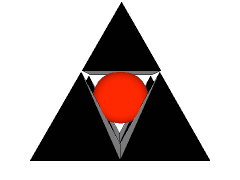








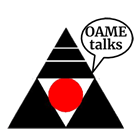
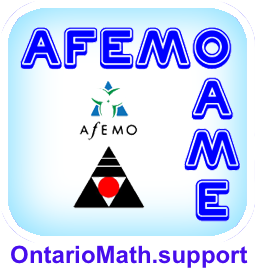
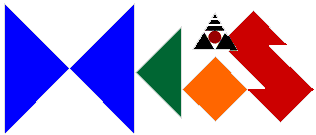



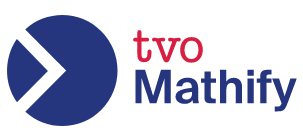

 Like us on FaceBook
Like us on FaceBook